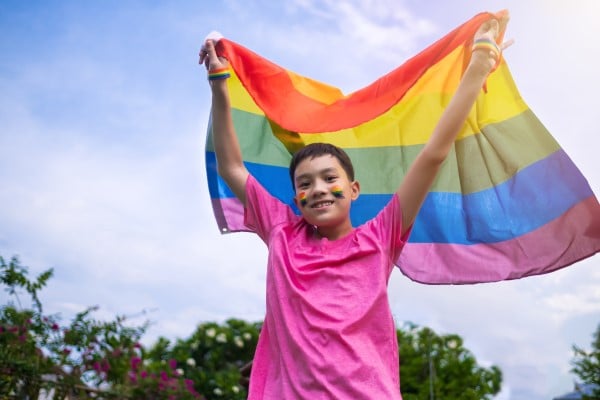Pediatric LGBTQ+ Care
The MetroHealth Pride Network is a leader in caring for LGBTQ+ children and teens, and the children of LGBTQ+ parents.
Schedule an Appointment
Appointments may be in Pediatrics or may be with a Family Medicine or Internal Medicine/Pediatrics provider for primary care for your whole family, 216-778-8546.
Our providers are passionate about every aspect of children’s health. Our services include:
- Well child and development, from birth to 18
- Immunizations
- Management of chronic and long-term conditions
- Physical exams, including back-to-school physicals
- Vision and hearing screenings
Our providers are also aware of the unique needs and stresses that sex and gender diverse children and adolescents may be going through. They are affirming and sensitive in all care.
Frequently Asked Questions
Find some commonly asked questions and answers about appointments, services, and more from MetroHealth Kids Pride.
Kids Pride pediatrics primary care appointments can be made by calling 216-778-8564.
Children and teens who identify as LGBTQ+ have the same medical care needs as every growing child. They may also have questions or concerns that are different from their peers. A Pride care provider will be aware of those varied needs and will be comfortable addressing them as they come up.
All teens have concerns around relationships and intimacy, an informed pediatrician can help with understanding and staying safer. Pride providers are informed about more unique concerns for teens who may be in same-sex relationships and can help with understanding and critical choices for health and safety.
All children grow best when they feel safe, supported, and confident to be themselves. The best way to support a child is to listen without judgment to their thoughts and experiences.
Calmly listening to your child will open a channel of communication and allow them to feel safe talking with you about this topic.
Being an advocate for your child’s needs and rights in school and other settings outside of the home is also important.
Research has shown that when families are affirming and accepting of their child’s sexual orientation, they impact their child’s mental health in very positive ways.
In addition, educating yourself about sexual orientation may help your child feel more understood. Resources such as the Safe Zone Project, the Trevor Project, the Gay Lesbian, and Straight Education Network (GLSEN), and PFLAG offer wonderful educational materials.
In 2023 the Ohio Legislature passed HB 68, a law restricting care for gender diverse minors in Ohio. It went into effect in 2024.
A challenge to the law is in the Ohio Supreme Court. Until a permanent decision is made, minors in Ohio cannot be prescribed puberty blockers or hormone replacement therapy. MetroHealth does follow all state and federal laws.
The MetroHealth Pride Network includes trained pediatric behavioral health specialists who work with children and teens questioning their gender identity. For questions or to make an appointment call 216-778-8564.

Resources For Patients and Families
Find resources below from national and local LGBTQ+ organizations to learn more about gender identity and other gender-related topics:
LGBT Center of Cleveland 216-651-5428
Programs for ages 11 to 20
QYou Queer Youth Initiative
Lorain County QYou
LGBTQ+ Allies Lake County 440-296-9443
Youth and adult programs, trans support.
Geauga SOGI Support Network 440-682-0680
Middle & High school groups. Parent groups.
OutSupport 330-461-5545
Programs and resources for trans kids & their parents
PFLAG Cleveland 216-220-7030
Support for parents, partners, friends and family.
Anshe Chesed Fairmount Temple
Welcoming Cleveland area LGBTQ+ Jews and their families and friends.
TransAlive 330-240-1600
Monthly meetings in Fairlawn for trans folks to make connections.
Colors+ Youth Center 216-200-8426
Offers virtual and in-person events for teens 11 to 19
Colors+ Counseling 216-200-8814
Licensed counselors for all ages
Studio West 117
Complex includes performance space, restaurants, nightclubs.
CANAPI (Akron Area) 330-252-1559
The Community AIDS Network | Akron Pride Initiative
Akron based resources and connections.